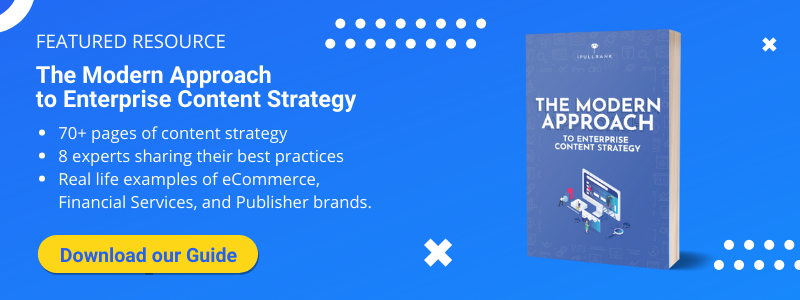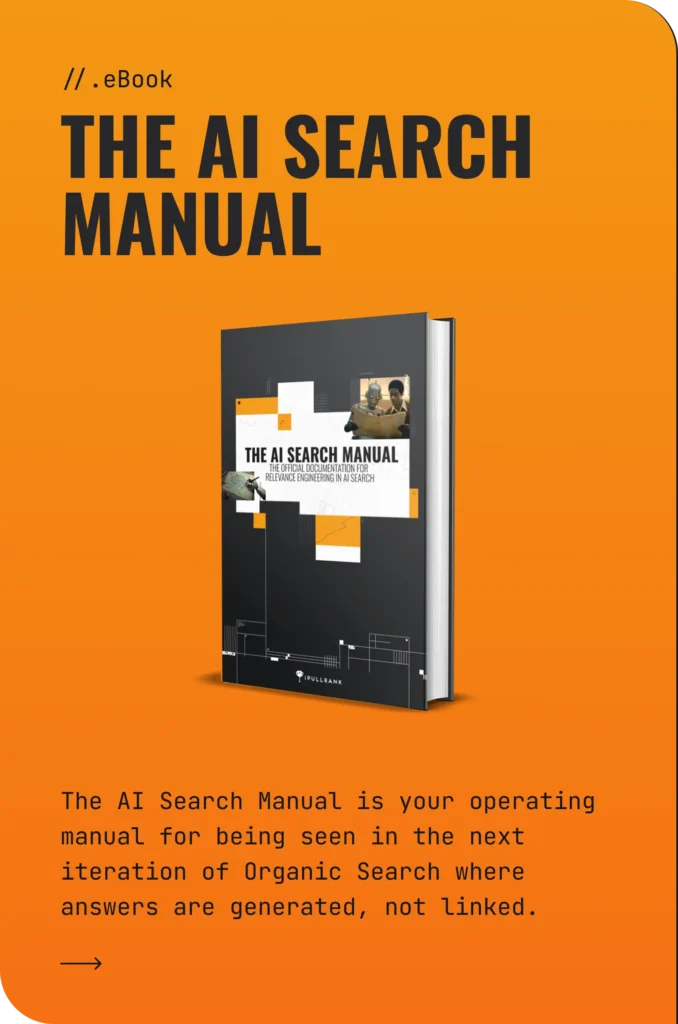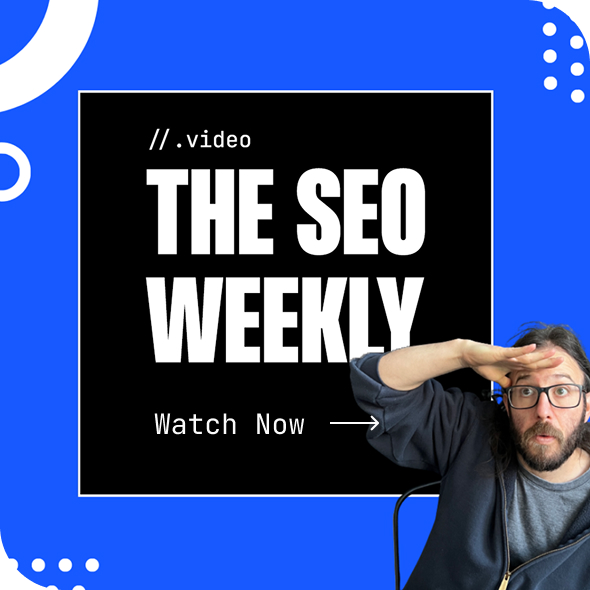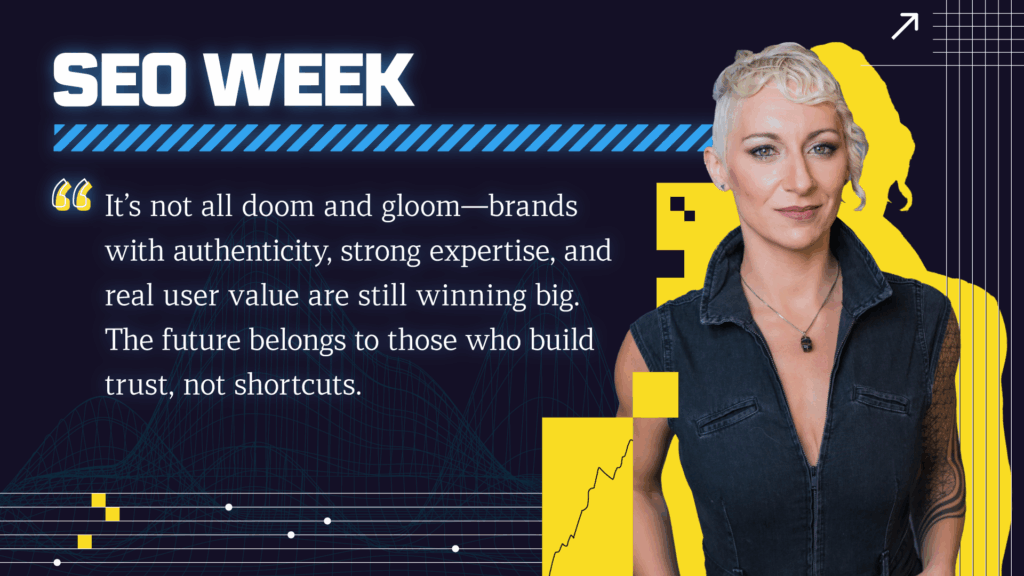eCommerce content marketing is an essential part of the marketing strategy for any business with an online presence. In 2020, the coronavirus pandemic caused a boom in eCommerce, as the sector rose from 16% to 19% globally. Though some of the pandemic’s effects are waning, many of the trends that began out of necessity might continue for the sake of convenience.
In this highly competitive online space, it’s crucial for players to implement an effective marketing strategy so they can stand out. Learn how you can structure your marketing with these eCommerce examples.
What Is eCommerce Content Marketing?
eCommerce content marketing is the creation of content to attract traffic, links, and conversions for your business. It can include the production of website content, blogs, emails, social media posts, and advertising.
What Are Effective Content Marketing Strategies for eCommerce Brands?
As an eCommerce brand, it’s important to identify the best marketing strategy for your goals. eCommerce typically falls into one of two categories: B2C and DTC.
B2C, or business-to-consumer, eCommerce is the online sale of products from a retailer to a consumer. The retailer might carry products from several brands. In this paradigm, marketing focuses on the company itself while highlighting the wide range of products available. Differentiation focuses on how the store offers better service or selection than other online stores.
DTC, or direct-to-consumer, eCommerce is the sale of products from the manufacturer to the consumer. You don’t have an online marketplace serving as an intermediary. Instead, the manufacturer takes complete control over every step of the process, from production to shipping. This allows for greater brand differentiation. The growth of enterprise eCommerce platforms has made it easier for companies to take this approach.
In a B2C setting, one product might sit right beside its competitors. The retailer has less stake in which brand the consumer purchases, because they make a profit regardless. Thus, a B2C campaign focuses on the business overall. With DTC marketing, you can focus more on highlighting how your brand stands up against the competition and explain exactly why your items are better options. This type of marketing campaign focuses heavily on the brand.
5 Types of eCommerce Content Marketing
You can approach eCommerce content marketing in a variety of ways. A well-rounded strategy typically incorporates several avenues, with each type of content supporting or building on the others. For example, an active blog can draw more traffic to your general website content, and your social media posts are a great place to promote your blogs.
Website Content
Website content refers to the text, images, and videos that make up your webpage. This might include product descriptions, a brand profile, testimonials, case studies, infographics, and more.
Good website content will:
- Improve SEO.
- Improve conversion rates.
- Deliver a clear call to action (CTA).
You can measure your success in this area with key performance indicators (KPIs) such as:
- Unique page visits.
- Time on page.
- Bounce rate.
Check out these companies that are doing it right:
- Investopedia: Investopedia has a powerful content marketing strategy and outstanding content architecture. It’s easy to navigate the site and understand its topics, which is likely why Investopedia.com draws more than 33 million visitors a month.
- GoPro: GoPro cameras produce action-packed videos that practically market themselves, which is just what the company has let them do. The website content features rich visuals and immersive videos that sell the adventure-ready cameras easily.

- mHelpDesk: On the mHelpDesk website, you’ll find compelling customer-generated content that sells the company incredibly effectively. Instead of promoting itself, mHelpDesk features videos of satisfied clients who do the selling for them.
Blog Content
A blog is a regularly updated part of your company’s website. You can use this section to promote special events and limited-time sales, but you should also populate it with evergreen content that’s not time-sensitive for an ongoing boost to your SEO. While website content is fairly static, your blog needs fresh content often.
Quality blog content can help you:
- Establish thought leadership.
- Build your brand.
- Educate customers about your products and services.
Key KPIs that will demonstrate how your blog is performing include:
- Average comments per post.
- Average inbound links per post.
- New vs. returning visitors.
These companies are doing a great job with their blogs:
- ProFlowers: Thanks to its in-depth content, ProFlowers gets 42% of its traffic organically. The site’s exhaustive list of 151 types of flowers draws more than 17,000 visitors a month and establishes ProFlowers as an authority in this space.

- Beardbrand: The Beardbrand blog accounts for 69% of the site’s organic traffic. The posts are keenly on topic, catering perfectly to the company’s target demographic.
- Northern Brewer: Catering to home brewers, Northern Brewer delivers informative how-to content that connects effectively with consumers. The site’s posts on how to make beer generate over 6,000 organic visits a month.
Email Marketing
With thoughtful email marketing, you can achieve many powerful goals. These messages are delivered directly to the inbox of those who have opted into your mailing list.
Effective campaigns can:
- Automatically engage with customers in response to triggers like a purchase or an abandoned shopping cart.
- Make a personal connection with customers.
- Drive traffic to your website.
Essential KPIs for your email marketing campaigns include:
- Open rates.
- Clickthrough rate.
- List growth rate.
These businesses are doing an outstanding job with their email marketing campaigns:
- I Will Teach You To Be Rich: Ramit Sethi of I Will Teach You To Be Rich uses an omnichannel marketing strategy but puts a heavy emphasis on email campaigns. His content uses extensive customer research and includes quotes from those who email him, creating a highly engaged audience.
- Mumsnet: This parenting site sends customized emails based on the recipient’s due date to develop customer loyalty early with a personalized approach.
- On: On delivers highly customized emails based on the customer’s shoe purchase date and running habits. The company directs its shoppers to handy shoe buying guides and reminds them when it’s time for a new pair.
Social Media Marketing
Social media is a highly interactive space where you can form strong relationships with your audience through direct communications. This makes it easy to handle eCommerce challenges such as losing the face-to-face connection you have in a brick-and-mortar store. Sites like Twitter, Facebook, and Instagram provide unparalleled opportunities to connect with your customers.
Social media marketing can help you achieve goals such as:
- Building customer relationships.
- Creating a community of advocates.
- Boosting customer engagement.
Essential KPIs to track for your social media include:
- Followers.
- Likes.
- Shares and retweets.
These brands are doing a great job with their social media marketing campaigns:
- PlayStation: PlayStation has more Twitter followers than any other brand, due in large part to its engaging mix of content, which includes game trailers, streaming events, gameplay screenshots, and announcements.
Steady your blade.#GhostofTsushima Director's Cut is out now on PS5 and PS4: https://t.co/kAEC6U4Z4W pic.twitter.com/IFnAkCtIjz
— PlayStation (@PlayStation) August 20, 2021
- Glossier: Glossier interacts heavily with its Twitter followers, creating a loyal following that does ample marketing for the company through recommendations and word of mouth on social media channels.
- Wayfair: Using beautiful photos, Wayfair highlights the gorgeous aesthetic of its products. The brand details the items featured in its highly visual posts so viewers can easily jump to the Wayfair site and purchase the items they’re coveting.
Advertising
Advertising campaigns are specific marketing strategies that promote a single concept heavily. This can take place across multiple channels. While the campaign might focus on a single piece, such as a video, it will get the most traction when shared across your website, social media, and email marketing channels.
The primary goals of any advertising campaign are to:
- Inform customers about products and services.
- Persuade viewers to complete the CTA.
- Remind shoppers about the brand’s key features.
Advertising can take many forms and might incorporate any of the previously mentioned types of content marketing. Each campaign will have its own KPIs, but some of the most common are:
- Return on ad spending.
- Customer acquisition cost.
- Conversions.
These brands have launched wildly successful and creative advertising campaigns:
- Absolut: Absolut developed an advertising campaign so successful it ran for 25 years. Though the bottle doesn’t have a distinct shape, the brand built an entire campaign around finding bottle-shaped images in unusual places, catching Absolut “in the wild.”
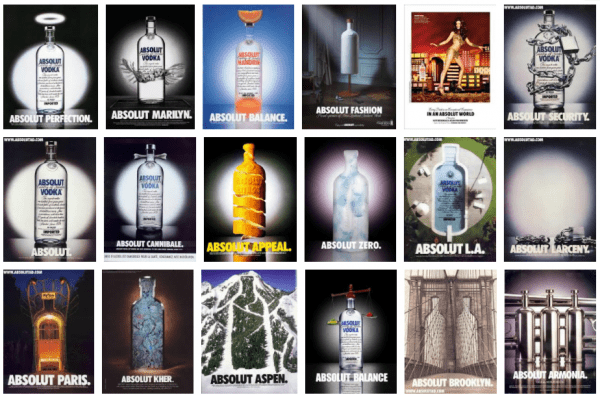
- LEGO: In tumultuous times, LEGO stood out with its “Rebuild the World” campaign. This was the first marketing campaign LEGO had launched in 30 years, and it made a major impact with its thoughtful approach to social issues.

- Volkswagen: Volkswagen ran an unforgettable and highly engaging advertising campaign in 2020 in which they hid a Passat Alltrack in the snowy terrain of Sweden and launched a scavenger hunt. The “No Show Room” campaign awarded the vehicle to the person who found it, creating a fun and interactive adventure.

If you’re ready to take your marketing to the next level, download the Modern Enterprise SEO eBook and learn how you can boost SEO across many of your content marketing campaigns. Contact iPullRank for a content strategy consultation that’s customized for your company’s distinct needs.

